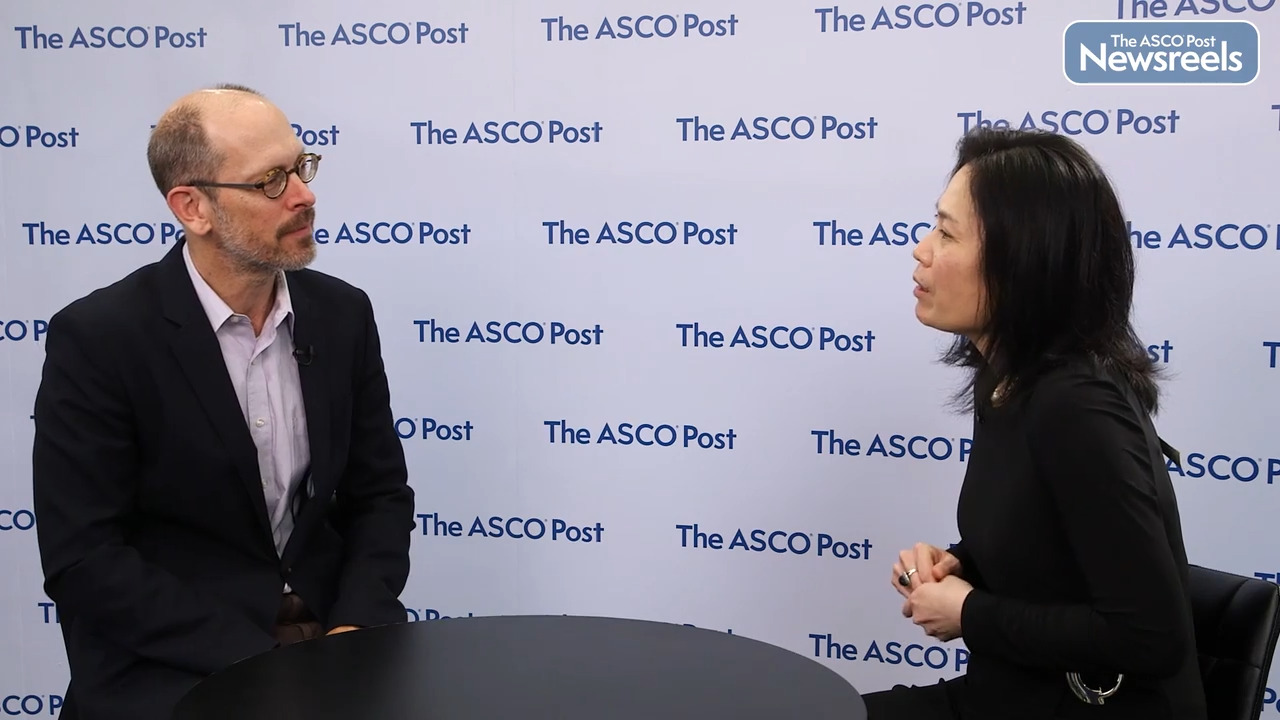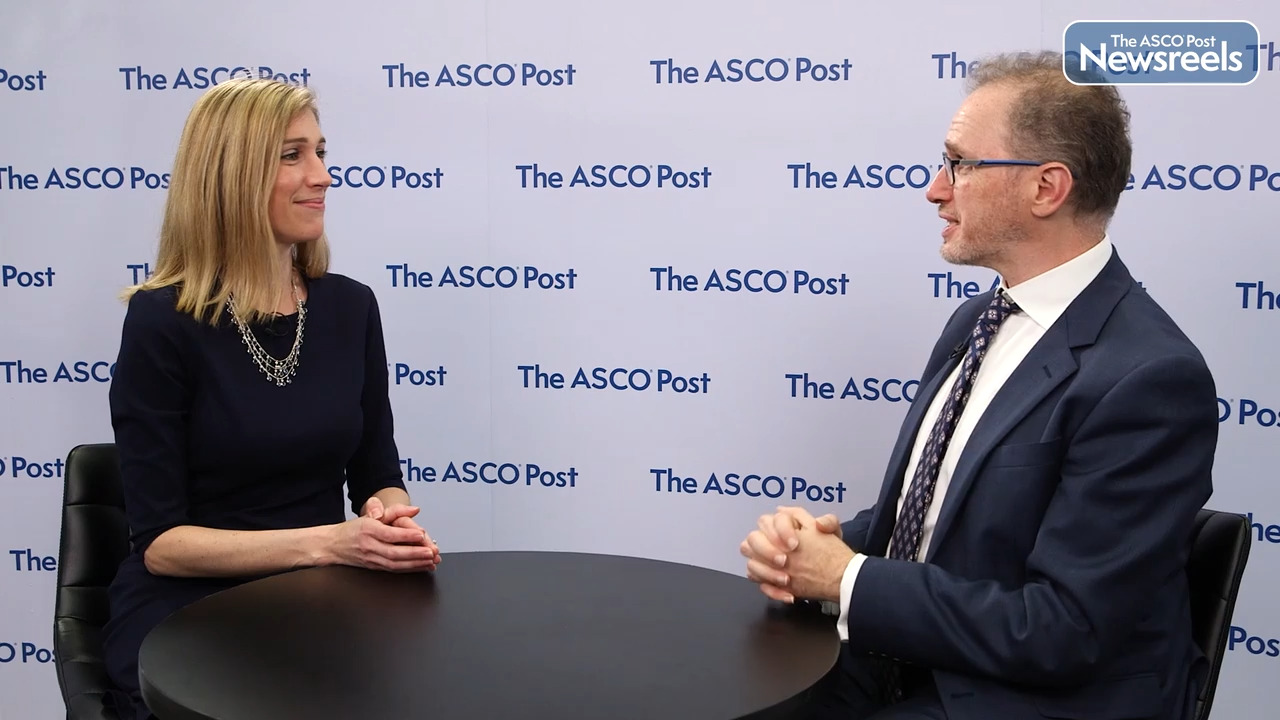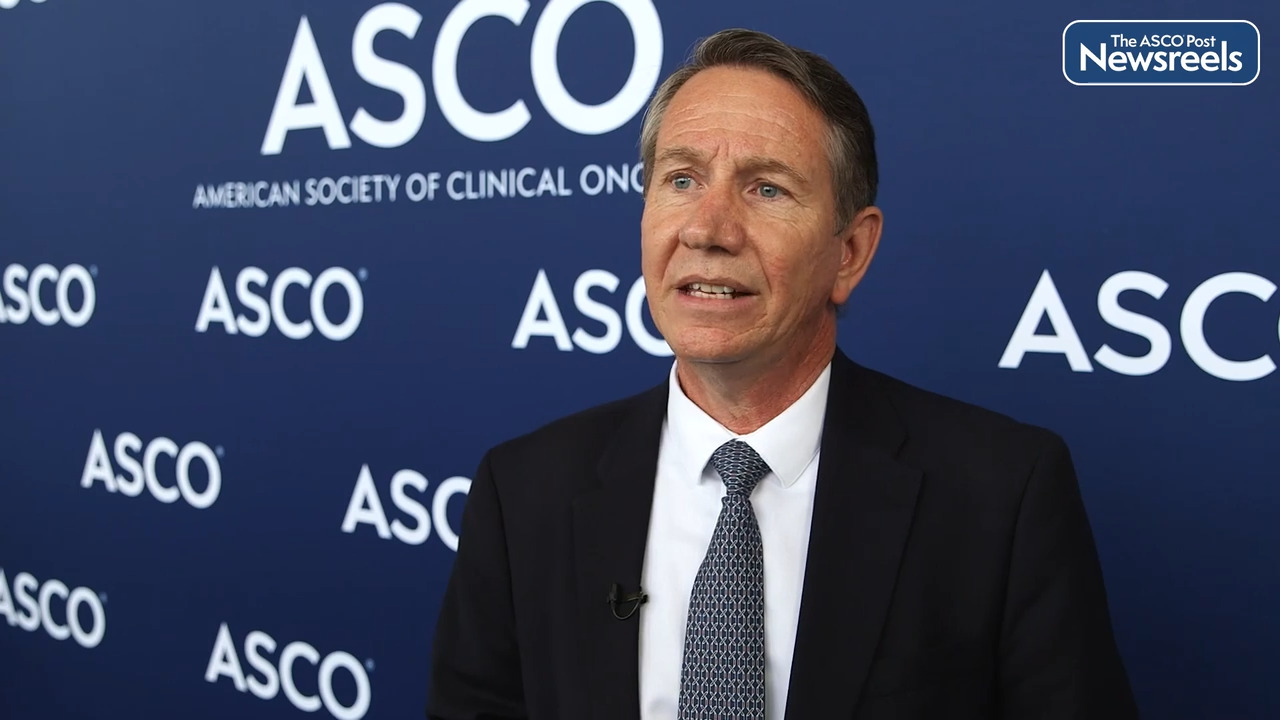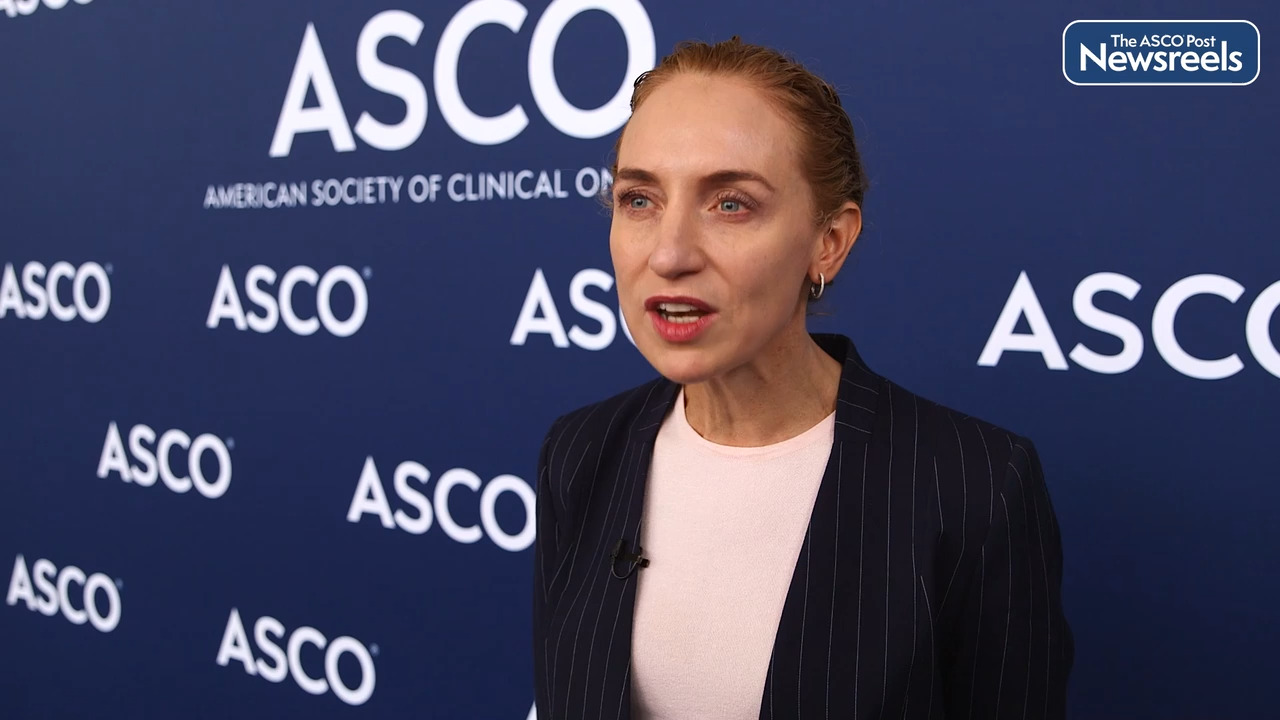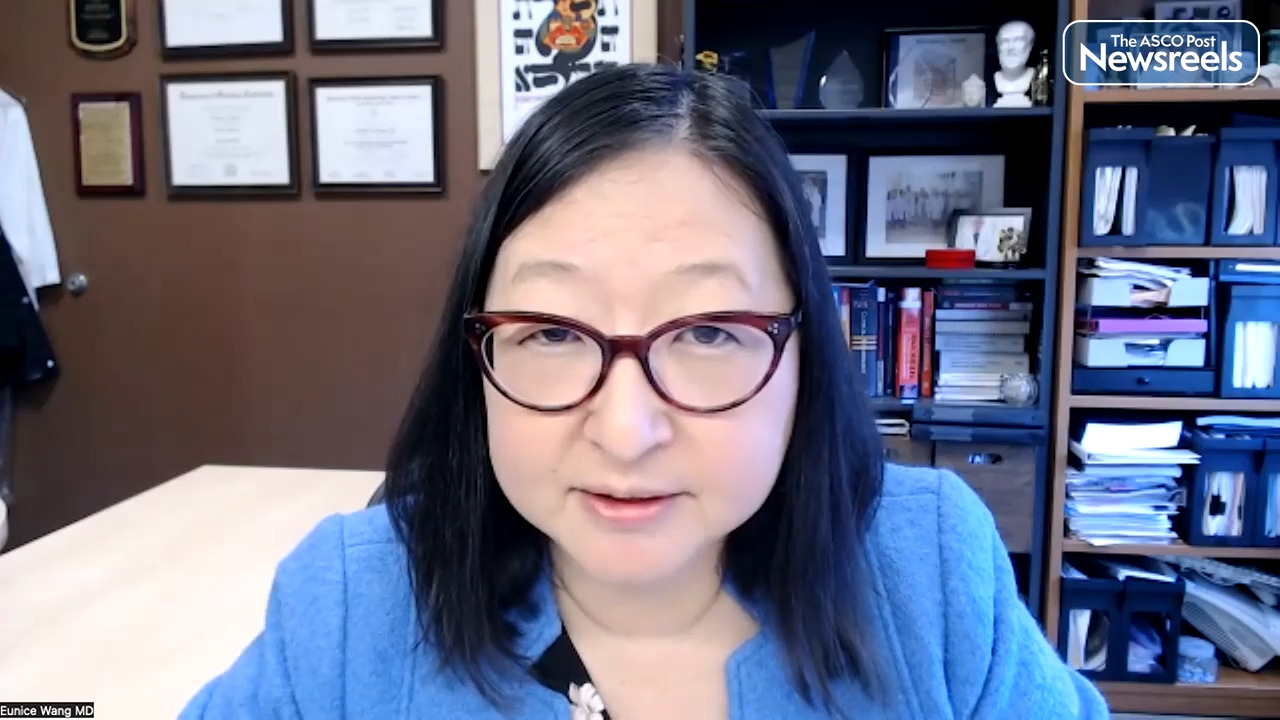Ruben A. Mesa, MD, of Mays Cancer Center at UT Health San Antonio MD Anderson Cancer Center, discusses new findings from the MOMENTUM study. This trial showed that in symptomatic and anemic patients with myelofibrosis, momelotinib was superior to danazol for symptom and spleen responses, as well as transfusion requirements (Abstract 7002).
Transcript
Disclaimer: This video transcript has not been proofread or edited and may contain errors.
Myelofibrosis in 2022 continues to have significant unmet needs. We currently have now three approved drugs in the disease's background, ruxolitinib, fedratinib, and now pacritinib most recently. Still the issue of anemia remains a difficult issue in myelofibrosis as we try to holistically treat patients with the disease. The MOMENTUM study, which I presented on behalf of investigators at the 2022 ASCO meeting in Chicago was a phase three randomized clinical trial. The third phase three trial performed for momelotinib, where two prior studies that had demonstrated benefits in terms of improving splenomegaly symptoms, and anemia. The SIMPLIFY-1 study, which was a frontline study and the SIMPLIFY-2 study. Now there was still critical additional data, which was required to really fulfill the momelotinib story. So the MOMENTUM study was designed. As background momelotinib is a JAK 1 and JAK 2 inhibitor, but also inhibits ACVR1, which we feel inhibits hepcidin that helps to improve potentially anemia in myelofibrosis. So the MOMENTUM study is a randomized study of momelotinib versus an active control arm of danazol for patients who were symptomatic, they were anemic and they had previously failed JAK inhibitor therapy with ruxolitinib. They were randomized two to one between momelotinib and danazol. We found that the study was positive and met all of its primary endpoints as we reported at the ASCO meeting. First, it was clearly superior for control of symptoms as measured by the MPN symptom assessment form. Second, it was non-inferior for anemia by its primary endpoint, as it related to anemia with an improvement in transfusion independence from 13% to 31% on the momelotinib arm and 15 to 20% on the danazol arm. So danazol had activity, it was an active control arm. We felt that it was a very valuable, appropriate comparator for momelotinib. And overall the trend was certainly superior for momelotinib versus danazol, but at least non-inferior, which had been the endpoint on the study. By additional analysis as we look at transfusion free for the whole study period, it was clear that momelotinib was superior to danazol for that piece. Finally, it was clearly superior for improvement in splenomegaly. Whether we look at a 35% cut off by volume, which is the traditional endpoint or this being a second line study, we also looked at a 25% improvement in splenomegaly, which was 40% versus a much smaller percentage from danazol was highly statistically significant. So the takeaways, momelotinib was clearly superior to danazol on randomized phase three blinded clinical-controlled trial in terms of improvements in splenomegaly symptoms and anemia. We believe that in addition with the data which we already have from momelotinib and SIMPLIFY-1, and SIMPLIFY-2, this really constitutes a very profound, robust set of data for momelotinib to have it hopefully become registered as an option for patients with myelofibrosis, particularly if they suffer from splenomegaly symptoms and anemia. We presented additional data at the ASCO 2022 meeting, as it related to momelotinib and momentum. My colleague, Dr. Aaron Gerds presented an additional analysis where we were looking at the data for individuals who had significant thrombocytopenia and the anemia of thrombocytopenia are sometimes concurrent. On the MOMENTUM study. Anyone was eligible who had a platelet count of over 25,000. So looking at both individuals with a platelet count of under a hundred thousand and under 50,000, one we saw significant efficacy and safety in both of those groups, superiority versus danazol, which we had fully expected, but also really there could be used safely, even in those settings with significant thrombocytopenia. We think that's particularly helpful in that this phenotype of cytopenic myelofibrosis sometimes both anemia and thrombocytopenia can be concurrent and it makes it more relevant and a broader option, potentially for momelotinib in these patients.
